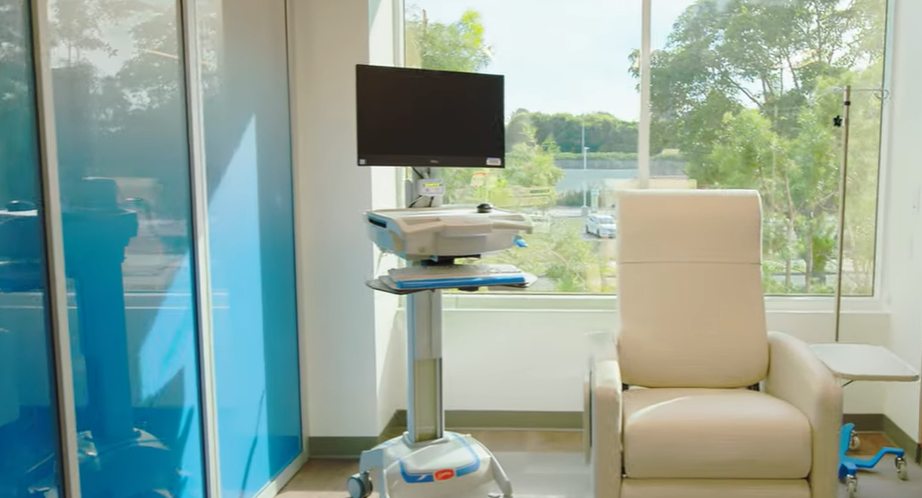More than 827,000 patients’ names, Social Security numbers, insurance information, and medical records that exposed the most private aspects of their healthcare journeys were among the highly personal details compromised in the breach, which was discovered in late 2023. For many, this was a personal intrusion that made it difficult to distinguish between vulnerability and violation, rather than just a cybersecurity lapse.
Long seen as a symbol of kindness and medical advancement, City of Hope was now faced with an unsettling conundrum: how could a facility devoted to healing end up being the target of violence? The institution’s leadership accepted a $8.5 million settlement, indicating responsibility without formally admitting guilt, despite their denial of any wrongdoing. In order to restore trust among patients who had entrusted the organization with their most sensitive information, the agreement was especially creative in that it combined long-term safeguards with monetary compensation.
The settlement itself was designed to be incredibly inclusive and transparent. While others were given a base payment of $100, those who experienced financial loss could receive up to $5,000 with the right paperwork. Because California has a particularly strong stance on digital security, residents of the state received an additional $250 benefit under state-specific privacy laws. Additionally, CyEx made its identity monitoring and medical data protection services available to all eligible claimants, demonstrating the importance of digital guardianship in the healthcare industry in a very proactive manner.
The settlement made sure victims were not left vulnerable to future threats by utilizing cutting-edge monitoring tools. CyEx’s system is very effective at protecting personal data, providing those impacted with control and reassurance. It is made to monitor fraudulent activity and flag irregularities in real-time. Just this feature has been hailed as being exceptionally successful at reviving confidence, particularly for patients who are already struggling with uncertainty surrounding their health.
Case Overview — City of Hope Data Breach Settlement
| Category | Details |
|---|---|
| Organization | City of Hope National Medical Center |
| Settlement Amount | $8.5 million class-action settlement |
| Incident Period | September 19 – October 12, 2023 |
| Affected Individuals | Approximately 827,000 patients |
| Nature of Breach | Unauthorized access to personal and health information |
| Compensation Options | Up to $5,000 for documented losses; $100 for general claims; $250 for California residents |
| Additional Benefits | Free medical identity and credit monitoring through CyEx |
| Claim Deadline | January 13, 2026 |
| Legal Case | In re City of Hope Data Security Breach Litigation, Case No. 24STCV09935 (L.A. County) |
| Reference | cityofhopedatabreachsettlement.com |

The breach had a significant emotional impact. Many patients described the experience as a wound that went deeper than any diagnosis, expressing feelings of betrayal. They saw the hack as a violation of their privacy during a period when they were already dealing with a lot of personal difficulties. However, something important came out of this crisis: a renewed awareness of digital ethics in healthcare. Other healthcare facilities have been motivated to fortify their cybersecurity frameworks by City of Hope’s unanticipated pivotal moment in handling the incident.
This incident has sparked a wake-up call throughout the healthcare industry. Hospitals now see data protection as a moral requirement rather than a technical checkbox. Once based only on medical knowledge, patient trust is now also rooted in digital responsibility. Having learned from City of Hope’s vulnerabilities, leaders at other major medical centers, such as Cedars-Sinai and Mayo Clinic, have started implementing layered encryption systems and AI-driven threat detection. An industry that has long been criticized for lagging behind in digital maturity will especially benefit from this collective transformation.
Another example of a cultural shift in legal frameworks is the City of Hope case. Even when there is no immediate financial loss, courts are starting to recognize that data breaches can result in genuine emotional harm. With this change, our understanding of privacy as an extension of human dignity has significantly improved. According to legal experts, the decision establishes a precedent for cases of this nature, establishing digital negligence as a significant violation of professional duty on par with traditional malpractice.
From a societal standpoint, the settlement is a call to reconsider the value of data rather than just restitution. Healthcare organizations are now in charge of both digital identity and medical care. The stakes increase exponentially when these two dimensions come together. Since both determine a patient’s sense of safety, safeguarding their data is now a necessary part of protecting their health.
Predictive defense mechanisms were quickly adopted as a result of the breach. Machine learning systems, which operate similarly to a swarm of bees—connected, responsive, and collectively vigilant—are becoming more and more important in healthcare networks. By dynamically identifying threats, these systems stop breaches before they become widespread. Compared to legacy cybersecurity models, their deployment across extensive medical infrastructures has already shown itself to be substantially quicker and more flexible.
The fairness and clarity of the City of Hope settlement’s design are also noteworthy. The procedure guarantees accountability and accessibility by establishing strict deadlines, with claims due by January 13, 2026, and exclusions by December 15, 2025. Online filing is simple, identity protection codes are issued, and claimants can monitor the status of their compensation. Such a structure serves as an example of a significantly better model for the inclusive, transparent, and efficient operation of large-scale settlements in the digital age.

